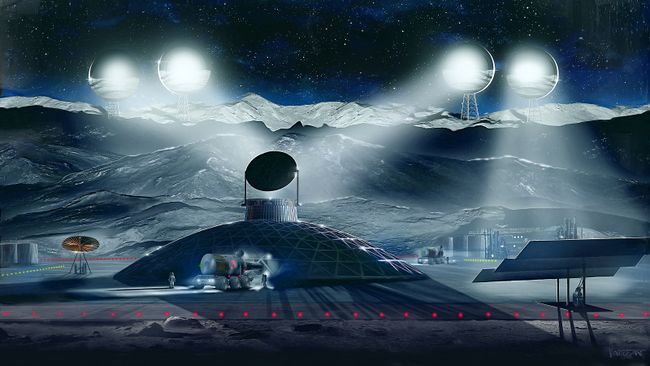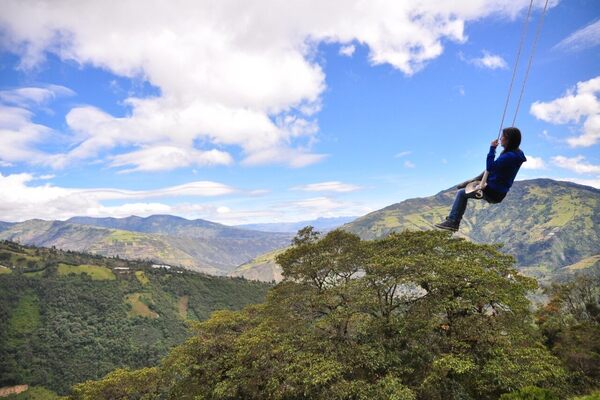A Breeding Breakthrough for New Zealand’s Chubby Night Parrot
Chicks born by artificial insemination offer new hope for the endangered kākāpō.
BY
ISAAC SCHULTZJULY 19, 2019
Kākāpō's recovery has been slow but steady.
FLICKR/NEW ZEALAND DEPARTMENT OF CONSERVATION
In This Story
![]()
DESTINATION GUIDE
New Zealand
IT’S HARD OUT THERE FOR a kākāpō. These famously adorable and unusual parrots—chunky, flightless, nocturnal—are one of the many critically endangered species in New Zealand, but efforts to increase their population have been slow-going.
Kākāpōs once had no natural predators, but now must deal with rats, cats, stoats, and possums. The country is trying to eradicate these predators and help the unusual bird come back from its mid-1990s low of just 52 individuals, but encouraging kākāpōs to breed is an uphill battle. The birds mate only every several years, with the fruiting of the rimu, a native tree. On top of that, they’re plagued with defective sperm and high rates of infertility. Now, for the first time in a decade, the country’s Kākāpō Recovery Team announced successful artificial insemination (of three female birds, resulting in two chicks), a major breakthrough in staving off extinction.
Even though scientists have the
genomes of every known individual, which helps them match up suitable breeding pairs, kākāpōs just don’t seem like they’re on board with the plan.
“Females are quite choosy. They want the best males with the best genes,” says Nicolas Dussex, a researcher with the Swedish Museum of Natural History.* “So you can’t force them to mate with a less than ideal male.”
It’s reasonable for female kākāpō to want the best, but this means that just a few males dominate the reproductive market—so every generation loses genetic diversity. The genetic similarities among the surviving individuals reduces their fitness, and means that they’re at greater risk of a pathogen wiping them all out in one fell swoop. The answer to this is to manage who mates with whom—giving some of those less desirable males a chance to pass on their genes.
RELATED
The Endangered Cow Being Saved by Cheese
Bovine researchers believe the world needs the only cow adapted to the largest tropical wetlands.
READ MORE
![]()
Kuia, one of New Zealand’s 142 adult kākāpō, with her clutch.
THEO THOMPSON, DEPARTMENT OF CONSERVATION (NZ) / CC BY 4.0
“Because the species is at risk of losing genetic diversity, artificial insemination can help maintain the genetic heritage of some males who would otherwise have no chance to mate due to strong competition with other males,” says Dussex.
A Breeding Breakthrough for New Zealand's Chubby Night Parrot
The Existential Ennui of Discovering an Endangered Species
Newly found and already almost lost.
BY
JESSICA LEIGH HESTERSEPTEMBER 27, 2018
In This Story
![]()
DESTINATION GUIDE
Ecuador
Meet the blue-throated hillstar. COURTESY FRANCISCO SORNOZA-MOLINA
IT ALL STARTED IN APRIL 2017, when Francisco Sornoza-Molina, an ornithologist at the National Institute for Biodiversity in Quito, Ecuador, was wandering the alpine plateaus (called “paramos”) of Cerro de Arcos, a rock formation in the country’s southwestern region. He was on the lookout for hummingbirds.
![d-3fIdS1uJ-JqpxmOkW_th3LuVL6ysMgoQxfG3DN54-8LDGFASORlw3EXk5qWKeGpseiL3pyhcl0Q4RcPM5qQyyD7vfR9bGckLx6GFvgFZzS_gNf3k4YzZTY7vYr_mo7dhS-oB3mOH-BI4lwDvoADr0e7OM4dVbZReU8ShXZ4Nirzd5rLUfHRXX_Hw30pWTEWgWKqw52PLL2ulXoKrPuLYV-1xA=s0-d-e1-ft]()
![vNShmJHXMyHUQqapyexJtU-650-80.jpg]()



















































